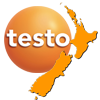
Quality control is a top priority for the food industry. If a business is working with perishable items, extra precautions need to be taken to make sure that the final food products are not only safe for consumption, but also enjoyable.
In order to maintain regulatory standards, it is important for grocery store and restaurant owners to utilise quality management technology throughout every step of the business process, starting from the supply chain and all the way through to the consumer.
This requires resourcefulness, diligence and perhaps most importantly, the right equipment.
What does food safety and quality mean?
There are many factors that have the potential to affect food safety and quality. Factors such as temperature at which it is kept, how it is cooked, cleanliness of the food and the surrounding areas, and the duration of storage all play vital roles in food safety and quality. While some of these factors are easy to monitor with little to no equipment (such as the age of food items), others require effective technology for complete and effective oversight. An example of these factors that need equipment to monitor them includes the temperature of the products and the environment.
Why is quality control important in the food industry?
New Zealand businesses in the food industry have a legal obligation to ensure that the products they sell to their customers are safe for consumption. While symptoms of food poisoning can be as mild as slight discomfort, they can also be serious and at times fatal.
Food poisoning can be attributed to a variety of different causes. There are many types of bacteria that can grow on food and cause symptoms. These symptoms vary in their severity, from mild to serious. The most common foodborne pathogens are salmonella, campylobacter and E coli. All of these pathogens occur in raw or uncooked food and have the ability to cause death when severe.
It is estimated that over 600 million people around the world contract foodborne illnesses every year. 420,000 of these people will die as a result of this according to the statistics provided by the World Health Organisation. While some instances of unsafe food are near impossible to detect, the vast majority can be prevented or discovered through maintaining food safety standards and implementing hazard analysis.
It is a moral and legal responsibility for New Zealand businesses in the food industry to comply with regulatory standards for food quality and safety. Furthermore, it also protects their reputation. News travels fast in the age of social media - it only takes one customer getting sick from products from your company to potentially put you out of business.
How to manage food safety and quality
Food service organisations can maintain product safety and quality by following the five basic food safety processes:
- Keep Clean
- Separate raw and cooked food
- Cook thoroughly
- Keep at safe temperatures
- Use safe water and raw materials
For some of these processes, businesses need the right equipment. One of the most important instruments being ones for temperature control.
Temperature affects the ability for bacteria to grow. When foods are left in temperatures that are too warm, harmful bacteria is able to survive and grow. This often has no visual evidence or odour.
It is common for food to travel a long way before it reaches the consumer. There are many different storage vessels where temperature needs to be monitored and maintained. For example, temperature control is vital in vehicles, refrigerators, freezers and kitchens. Furthermore, the internal temperature of the products themselves need to be checked to ensure that they are safe for consumption.
Monitoring temperatures in several locations and multiple products can be a challenging task to track manually. Fortunately, Testo NZ has the solutions to make food safety monitoring easier.
How Testo can help
Testo NZ has a wide range of products for businesses in the New Zealand food industry that allow operators to maintain regulator standards and safety with ease.
Saveris Food Stores and Testo Saveris Restaurant cover every step of the temperature measuring process. Our solutions provide high-quality sensors, which record accurate and reliable temperature data, as well as advanced software to analyse, document and store the information. Testo’s products also come with personalised support to help with set-up and continued assistance for operation
The multiple components of these measurement instruments ensure that the complicated and time-consuming temperature monitoring and analysis is easier than ever. This means that it not only saves you from an otherwise frustrating task, but also reduces the margin for error. Restaurants, stores and petrol stations often handle a large amount of products. Our technology is built for high volume projects.
Our measuring instruments for gastronomy cover a variety of needs. For example, our products for restaurants and catering allow businesses to both ensure that the refrigeration is at the appropriate temperature for food storage, while also making sure that cooked dishes are heated to the correct temperature.
In addition to this, our solutions for the cold chain involve the quick inspection of incoming goods, continuous temperature monitoring of storage areas, documentation of temperatures of fresh foods and the maintenance of constant low temperatures in refrigerator units.
We even have products for food production that not only measure the temperature of the cooked food, but also analyse the pH value and oil quality. Many of our solutions validate pasteurization, sterilization and freeze-drying processes.
Testo New Zealand aims to make food safety and quality management for New Zealand businesses as easy as possible. To find out how our solutions can assist your business in staying compliant with food safety regulations, get in contact with the expert team at Testo NZ today!

